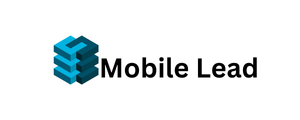In today’s hyper-connected world, businesses Laws Affect and marketers rely heavily on phone number lists to reach potential customers. However, with the rise of unsolicited Laws Affect messages and robocalls, spam laws have become increasingly strict. These regulations significantly affect how companies can collect, use, and manage phone number lists. Understanding these laws is critical not just for legal compliance but also for maintaining consumer trust.
Understanding Spam Laws in a Digital Age
Spam laws are legal frameworks designed to protect consumers from unwanted or deceptive communications. While email spam is widely discussed, these laws also apply to SMS messages, phone calls, and even WhatsApp or other messaging platforms. In honduras consumer mobile number list many countries, these regulations are governed by acts such as the Telephone Consumer Protection Act (TCPA) in the U.S., the Privacy and Electronic Communications Regulations (PECR) in the UK, and Canada’s Anti-Spam Legislation (CASL).
These laws typically regulate how consent is obtained, what kind of messages can be sent, and how individuals can opt out. Violating these rules can lead to hefty fines, legal actions, and reputational damage. So if you are managing a phone number list, it’s essential to know exactly what these rules mean for your communication strategy.
The Role of Consent in Managing Phone Number Lists
The cornerstone of any spam law is consent. Businesses must acquire either express consent or implied consent before sending promotional messages to a phone number.
Express consent means the user has what are doorway pages? are they good for your seo? explicitly agreed—usually through a sign-up form or checkbox—to receive messages.
Implied consent might be inferred through an existing business relationship, but this is more legally risky and often time-limited.
Failure to obtain proper consent before using a phone number list can trigger regulatory penalties. For example, in the U.S., companies have been fined millions of dollars under the TCPA for using auto-dialing systems without prior consent.
The Importance of Opt-Out Mechanisms
Another major requirement under spam laws is the inclusion of clear and easy opt-out mechanisms. Users must be able to unsubscribe from receiving messages at any time. This is commonly done by replying with keywords like “STOP” or through a link in the message.
Failing to provide an opt-out usa b2b list method—or continuing to message someone after they’ve opted out—can be seen as a serious violation. Regulators see this as a denial of a user’s right to withdraw consent, and such infractions are often penalized more heavily.
Incorporating compliant opt-out systems is not just about avoiding fines; it also enhances brand credibility. Consumers are more likely to trust a company that respects their communication preferences.
Final Thoughts: Compliance Is a Long-Term Investment
Spam laws are not just regulatory red tape—they’re about creating a fair and respectful digital environment. For businesses relying on phone number lists, compliance is non-negotiable. Make sure you.
